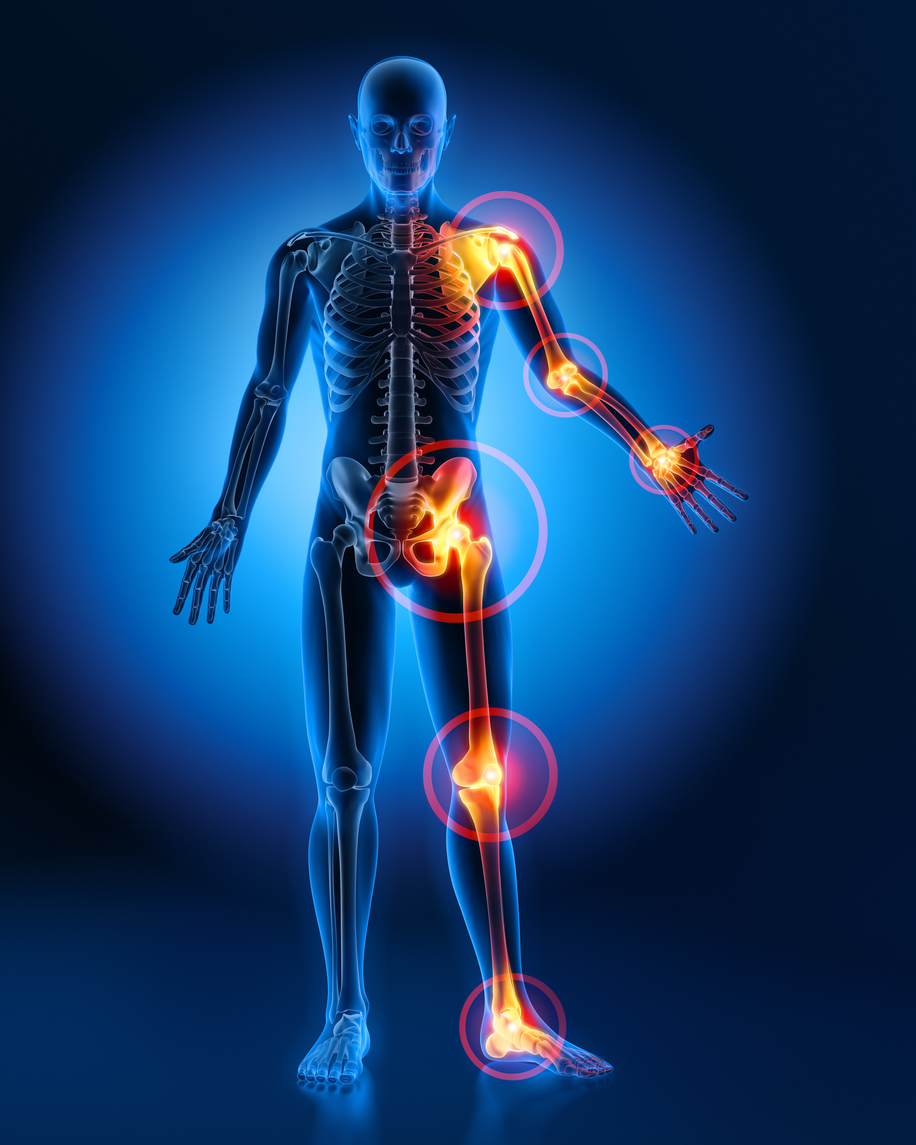
Osteoarthritis
Osteoarthritis, also known as degenerative arthritis or degenerative joint disease, is the most common form of arthritis.
Factors are known as risk factors for osteoarthritis:
• Obesity
• Aging
• Female gender
• White ethnicity or race
• Higher bone density
Osteoarthritis is caused by overuse of the joint, while rheumatoid arthritis is an autoimmune and systemic disorder that leads to symmetrical joint inflammation. Naturally, the cartilage allows the bones to slide slowly and effortlessly together. Loss or loss of the cartilage leads to stiffness, pain, swelling, reduced range of motion of the joint, and deformity of the joint.
Osteoarthritis usually presents as pain that worsens with weight and activity bearing and rest, and patients often report morning stiffness (gelling) of the affected joint after periods of immobility.
Management, medical care, and surgery of osteoarthritis:
The most appropriate treatment should include various non-pharmacological methods (patient education, physiotherapy, and occupational therapy), pharmacological agents and surgeries aimed at controlling pain, Improving health-related performance and quality of life, and avoiding the toxic effects of treatment.
Patients with severe osteoarthritis whose pain does not adequately respond to medication and whose daily activities, such as walking, bathing, wearing, and going to the toilet, are increasingly and progressively restricted should be treated by being evaluated by an orthopedic surgeon.
The role of exercise in osteoarthritis:
Osteoarthritis limits the ability to increase energy expenditure through exercise. Exercise must be done correctly so that it does not cause injury or worsen the complication.
Aerobic exercise, relaxation exercises such as swimming, restoring range of motion, and weight training have all been shown to reduce symptoms, increase mobility, and reduce osteoarthritis injury progression.
Medical management for patients with osteoarthritis
o Medication:
• Corticosteroid drugs
• Topical pain reliever or other pain relievers
o Health behavioral changes:
• Weight control exercise
• Rest
• Relieve pressure and stress on the joint
o Non-pharmacological analgesics:
• Health and cold
• Massage
Nutritional management for patients with osteoarthritis:
• A balanced diet with a suitable caloric content is appropriate for weight loss or weight control
• Anti-inflammatory diet
• Omega3 fat supplements
• Adequate calcium and vitamin D intake
• Containing or importing glucose amines and chondroitin




